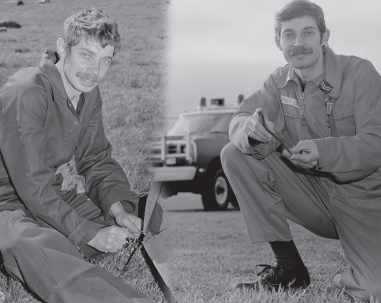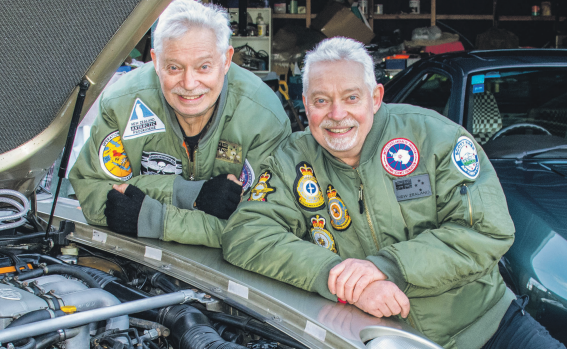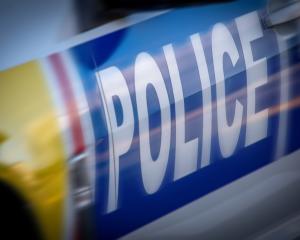
After their family fled Europe to escape the Russians after World War 2, identical 67-year-old twins Robert ‘Bob’ and Roland ‘Rolly’ Janek were determined to serve their new country, enlisting in the air force as soon as they could despite what their father had been through.
Their Hungarian father, Joseph Zolten Janek, had been a pilot before the war and was conscripted into the Luftwaffe, Germany’s air force, serving in France, Germany and Russia.
“He had no choice. He would have been shot otherwise, and his family taken away,” Bob said.
Janek flew Junkers Ju 88 bombers and Ju 87 Stukas before switching to the Messerschmitt ME109 fighter plane.
“He did a lot of his fighting in Stalingrad as a 109 fighter pilot and was shot down twice. The first time was from anti-aircraft guns fired by his own side.”
The second time Janek was shot down, he was captured by the Russians and imprisoned for six months before escaping.
“He flew from the start of the war right through until the end. He was very lucky to survive,” Bob said.

“He had to do that for five years. A lot of his friends got blown up – he was one of about 700 who survived,” Bob said.
After being released, Janek took part in the 1956 Hungarian Revolution, an ultimately unsuccessful attempt to free the country from Soviet control.
The 15-day uprising was crushed by Soviet tanks and troops, killing or wounding thousands of Hungarians.
After the revolution failed, the Janeks joined the 250 million Hungarians fleeing the country.
“Unfortunately my dad’s brother was shot and killed by the Russians as they made their escape through swamps to reach the Austrian border,” Bob said.
Joseph and Maria Janek successfully made it to Austria where Bob and Rolly were born.
Bob said his dad never felt safe, always looking over his shoulder for the Russians, so in 1961 the construction engineer and his family were accepted by New Zealand as refugees.
“It would have been hard for mum and dad when they arrived in Auckland with two three-year-olds, two suitcases and only £6.
“I honour him for doing what he had to do to survive, and look after his family,” Bob said.
Growing up in Point Chevalier, Auckland, the twins watched military aircraft coming and going from the airbase at Whenuapai, both deciding to join the Royal New Zealand Air Force when they turned 18.
Bob, who had always wanted to be a firefighter, joined the Crash, Fire, Rescue Unit, while Rolly became a military police officer.
The pair said their father was upset when they enlisted in 1976.
“He didn’t talk to us for a year. He didn’t want us to go through what he did, but eventually he came around,” Rolly said.
The new recruits were flown to RNZAF Base Wigram to start their training.
“As soon as we got off the aircraft we heard one of the general service instructors say ‘Oh no, f***ing twins’.”
Rolly said they gave the instructors hell.
“We got away with blue murder. They couldn’t tell us apart, and we also had the same initials – RJ,” he said.
Bob said one night he was spotted visiting a “wee lassie” in the women’s barracks.
“I jumped out of a second-storey window and escaped. The instructors tried to charge me but I said no, it was my brother. But he denied it and said it was me.”
The investigation was dropped because they couldn’t identify which twin was responsible.

However, there were occasions when the mischievous pair came unstuck.
“One of our instructors was a corporal called Digby Bentley. One night we both snuck off the base into town and got t-shirts made up saying ‘Digby Bentley: Public Enemy Number One’.
We got into a lot of trouble for that,” Rolly said.
The twins had to clean toilets and scrub floors for two weeks as punishment, Bob said.
Rolly was posted to RNZAF Base Ohakea after completing his military police training, while Bob remained at Wigram.
Three years later, Bob was transferred to the air force base at Ohakea, only to find Rolly had just been posted to Whenuapai.
“We were never allowed to be on the same base together. I think we were too much trouble,” Rolly said.
Even when they did catch up, things didn’t always go smoothly.
Said Bob: “I was visiting the base at Whenuapai where Rolly was stationed, and he was on gate duty instructing all the vehicles to reverse into the car parks.
“I told Rolly to f*** off and parked nose first.”
Rolly said Bob just wanted to be stubborn.
“He thought because I was his brother, he could push it, but I was a corporal and he was still a trainee.
“Bob kept mouthing off so I threw him in the back of the Morris Minor police van, and bounced him around in the back a bit as we drove to the cells where he cooled off overnight,” Rolly said.
When the military police disbanded in the late 1980s, Bob suggested Rolly join him in the Crash, Fire, Rescue Unit.
“But they still never let us serve together,” Bob said.
Over two decades in the RNZAF, Bob responded to 17 plane crashes, some of them fatal.
“I saw some pretty bad stuff. To deal with it, I just (mentally) put it in a bag, and froze it.”
After his stint with the air force, Rolly joined the firefighting crew at Hamilton Airport, before becoming maintenance co-ordinator at Waikato University.

However, his aviation career was halted when he was badly hurt in the February 2011 earthquake.
Bob now volunteers as a guide at the Air Force Museum in Wigram.
He works alongside Chris Checketts, the son of World War 2 fighter ace Johnny Checketts, who also flew in Europe during the war.
“We haven't been able to find any records of my dad’s forced service with the Germans. But it's possible our dads may have met each other in combat,” Bob said.
Every Easter, Bob spends about $1200 buying 600 chocolate Easter bunnies to give to children and staff at Christchurch Hospital’s cancer ward.
“I’ll never stop doing that. They shouldn’t be in there, us oldies should be,” Bob said.
He said he has always tried to give back.
“When we came to New Zealand we didn’t know anybody, and people helped us.”
With Rolly living in Hamilton and Bob in Christchurch, the twins try to meet up every month, but claim their mischievous, trouble-making days are over.
“We’re good boys now.”













